Photographs: Courtesy Indian Navy
After a gap of over two decades, India is operating two aircraft carriers in its maritime zone with the arrival of its largest warship INS Vikramaditya in the Arabian Sea where it is now operating with INS Viraat.
The 44,500 tonne warship, which cost over $2.3 billion, is being escorted by India’s other operational aircraft carrier INS Viraat along with other Western fleet frontline vessels, including destroyers INS Delhi and Mumbai and frigates INS Teg, Talwar, Trikand, INS Subhadra, INS Godavari and fleet tanker INS Deepak.
Click on NEXT to see more PHOTOS...
INS Vikramaditya in Indian waters
Photographs: Courtesy Indian Navy
The aircraft carrier is expected to reach its base in Karwar in Karnataka by the end of this week.
Vikramaditya, the floating airfield has an overall length of about 284 meters and a maximum beam of about 60 meters, stretching as much as three football fields put together.
Standing about 20 storeys tall from keel to the highest point, the sheer sight of this 44,500 tonnes mega structure of steel is awe inspiring. The ship has a total of 22 decks.
Click on NEXT to see more PHOTOS...
INS Vikramaditya in Indian waters
Photographs: Courtesy Indian Navy
At the Karwar base weapons, sensors and MiG-29K fighter jets will integrated and the warship will become fully operational.
The carrier was purchased by India on January 20, 2004 after years of negotiations at a final price of $2.35 billion.
The warship will be equipped with, as a part of the deal, 12 single-seat Mikoyan MiG-29K 'Fulcrum-D' and four dual-seat MiG-29KUB aircraft (with an option for 14 more aircraft), six Kamov Ka-31 "Helix" reconnaissance and anti-submarine helicopters, torpedo tubes, missile systems, and artillery units.
Click on NEXT to see more PHOTOS...
INS Vikramaditya in Indian waters
Photographs: Courtesy Indian Navy
Indian Navy’s long term objective is to be able to respond to emergent situations far away from main land. After China’s ‘string of pearls’ theory, India needs to develop a grand strategy to counter the Chinese aggression in the Indian Ocean.
INS Vikramaditya will have to play a crucial role in achieving this objective.
During the three-month sea trials, the ship had demonstrated excellent seaworthiness, speed of 27.9 knots (about 52 km per hour) and manoeuvrability.
Click on NEXT to see more PHOTOS...
INS Vikramaditya in Indian waters
Photographs: Courtesy Indian Navy
The ship was earlier scheduled to be inducted into the Navy in November, 2012 but some defects in its engines and boilers led to a year-long delay.
India and Russia had signed the deal for the aircraft carrier in 2004 and its induction will see the Navy having two operational carriers.
Click on NEXT to see more PHOTOS...
INS Vikramaditya in Indian waters
Photographs: Courtesy Indian Navy
The warship has been inducted into the Navy after a delay of almost five years and a cost over-run of almost $1 billion dollars.
India is also manufacturing its first indigenous aircraft carrier, INS Vikrant in Cochin which is likely to be operational by 2018.
Click on MORE to see related feature...

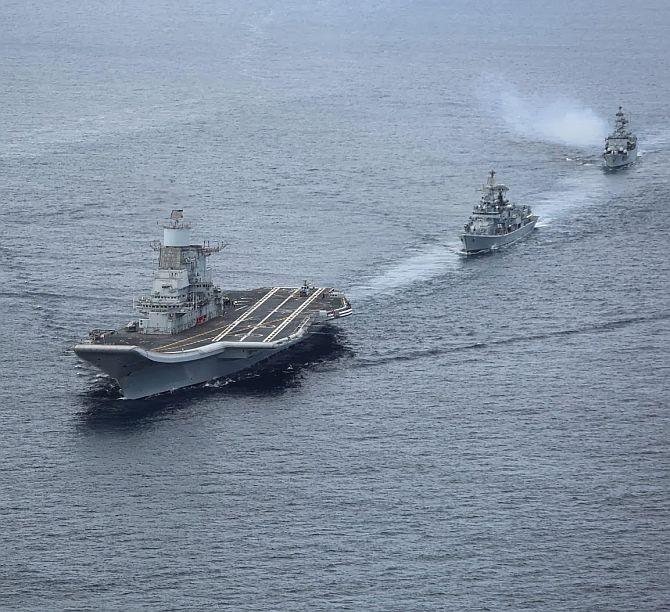
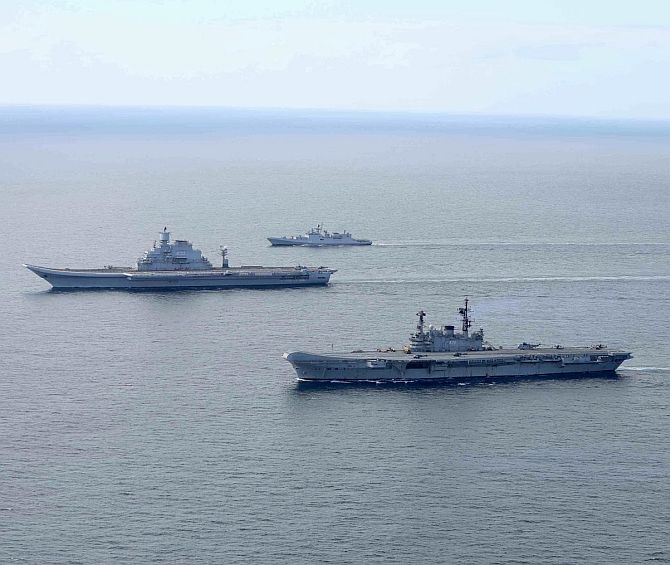
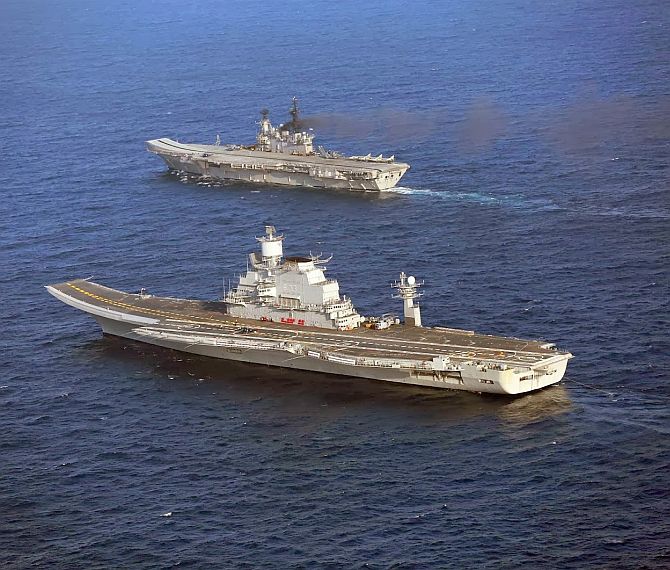
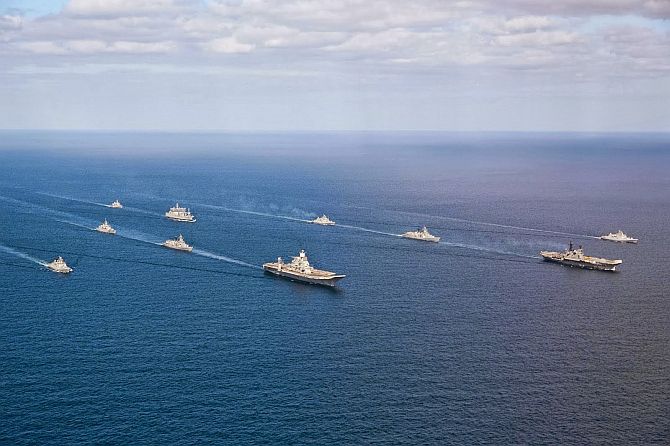

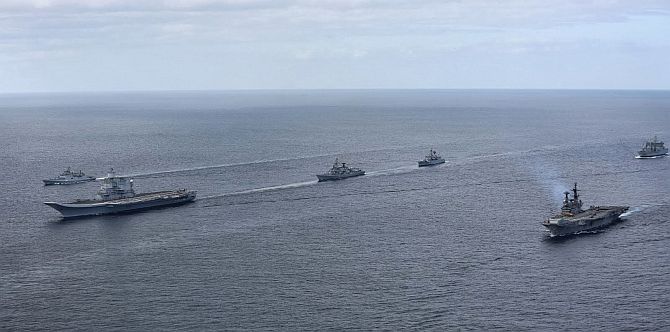
article